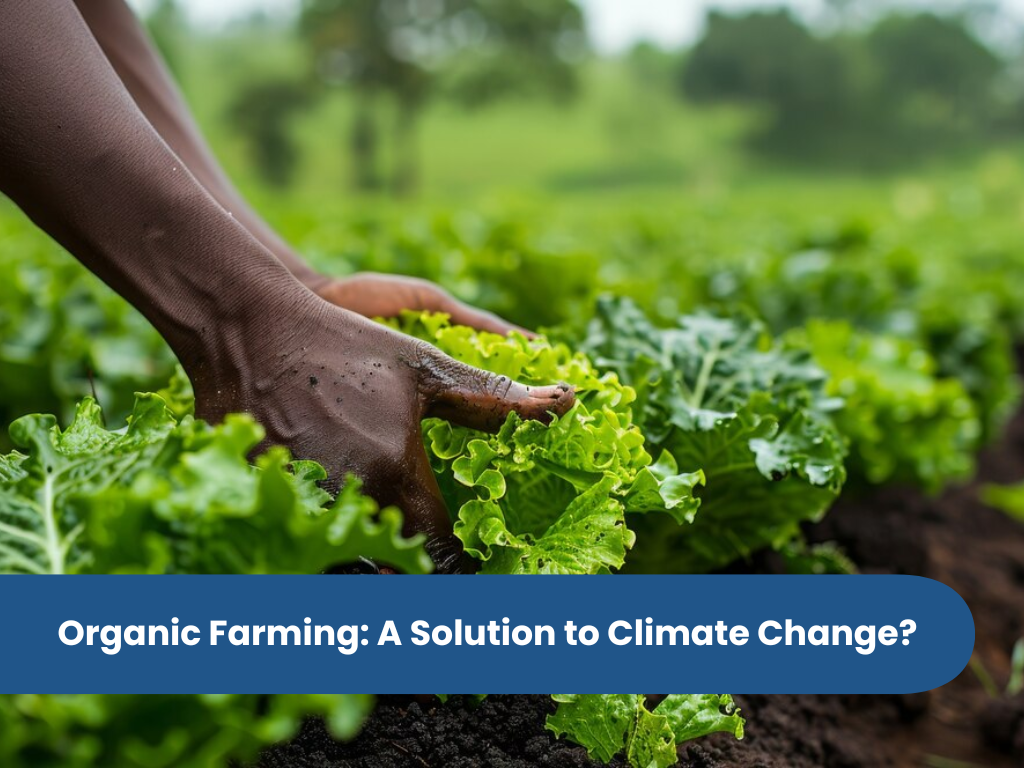Conversations around climate change have gained momentum over recent years. The reason being that our planet has started experiencing its adverse effects. From extreme temperatures to rising sea levels and melting glaciers to frequent natural calamities, our planet is undergoing a lot because of the rising climate change. While there are numerous contributors to climate change, we at the Tribhuvan College of Environment & Development Sciences, ranked among the leading environmental science colleges in Delhi NCR, believe agriculture is one of the most neglected and less-talked-about aspects in this regard. Many believe that agriculture is affected by climate change, but not many know that agriculture also has an equal effect on the changes the climate is going through.
Do you know all agricultural lands across the globe contribute to at least 13% of the total greenhouse emissions, and this percentage is continuously rising? If timely corrective measures aren’t taken, it can contribute to an increased temperature in the coming years. Fortunately, global governments have started looking for viable methods to reduce greenhouse gas emissions and have found potential in organic farming. A shift from conventional to organic agriculture can meet food demands while tackling climate change. Read this full article to understand how organic farming presents itself as a potent tool against climate change.
Organic Farming and Climate Change: Things Everyone Must Know
The concept of organic farming is not new. In fact, it was the only way to produce crops in ancient civilizations. Since organic farming promotes planting and growing fresh produce without using synthetic fertilizers and pesticides, it naturally reduces greenhouse gases in the atmosphere. Besides, it also aids carbon sequestration. Let’s gain an in-depth understanding of these two concepts in the section below.
-
Reducing Greenhouse Gas Emissions
Today, a significant portion of conventional farming relies on synthetic fertilizers, most of which are one of the biggest producers of nitrous oxide. This greenhouse gas is at least 300 times more potent and disastrous to the environment than carbon dioxide. Today, through this blog post, we at Tribhuvan College of Environment & Development Sciences wanted to pass on this message that if you choose to ditch conventional farming methods for organic ones, it can actually help to lower the emissions associated with synthetic fertilizers and pesticides. Moreover, organic farming doesn’t require as much machinery and energy as needed for conventional agriculture. This reduces the activity’s overall carbon footprint.
-
Enhanced Carbon Sequestration
Making all agricultural lands the hotbed of healthy soils is one of the best ways to lower the impact of climate change. Healthy soils are best known as a giant carbon sink that attracts and stores atmospheric carbon dioxide. Organic farming promotes cover crops and reduced tillage to foster better soil health for improved carbon sequestration. The soil quality improves when all agricultural lands stop using synthetic fertilizers and pesticides. This step is a natural solution to combat climate change.
Can Organic Farming Adapt to Climate Change?
Adopting organic farming over conventional means won’t make any difference overnight or even within a year. It may require collective efforts for a sustainable period to witness any positive result. But how to tackle food demands during this time?
In this regard, we at Tribhuvan College of Environment & Development Sciences believe that a gradual shift to organic farming won’t affect food production significantly. Yes, it might reduce crop production initially, but the final produce won’t lead to extreme scarcity.
As farmers start embracing organic farming by promoting healthy soil, non-usage of artificial and chemical-laden fertilizers and pesticides, etc., such steps can help agricultural systems and biodiversity evolve over a period. It will assist in diverse crop rotations, creating a more resilient ecosystem. Adopting organic farming practices like using compost and cover crops can enhance the land’s soil structure and quality, leading to better water retention. It is excellent for farmlands because it will protect the farms against severe droughts and floods, ensuring food demand is always met.
Potential Limitations and Considerations
While organic farming appears to be a safe solution against climate change, it isn’t free from inherent limitations. The need is to understand that organic farming isn’t a magical solution because it may yield lower produce than conventional farming methods, especially during the initial transitional phases. Additionally, sticking to organic farming practices for long requires proper resources, knowledge, and management for easy scaling. However, if these limitations can be worked upon diligently, organic farming is undoubtedly a promising solution to climate change.
Conclusion
The rising popularity, demand, and need for organic produce are making many farmers contemplate a shift from conventional to organic farming practices. You can also attribute it to the growing concerns of climate change. The fact is that organic farming is currently being seen as a beacon of hope that can transition from being a climate change contributor to a key solution to building a healthier planet.
Having said that, we at the Tribhuvan College of Environment & Development Sciences, one of the leading environmental science colleges in Delhi NCR, understand that organic farming can’t solve the problem all by itself, but it can definitely help to minimize the consequences of climate change. Yes, there are certain drawbacks to this solution, too, but they can be worked upon by global governments to support the cause. After all, getting an upper hand on the growing climate change issues and helping the planet to resume its healthier environment back is all that we must be focussing on. That’s the only way to save the planet, mankind, and our upcoming generations.

